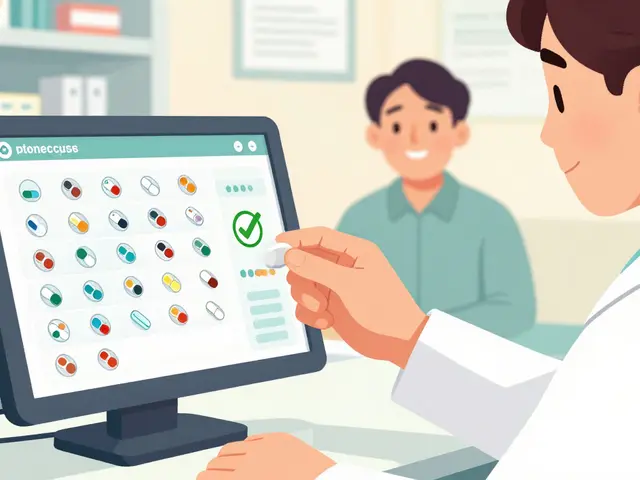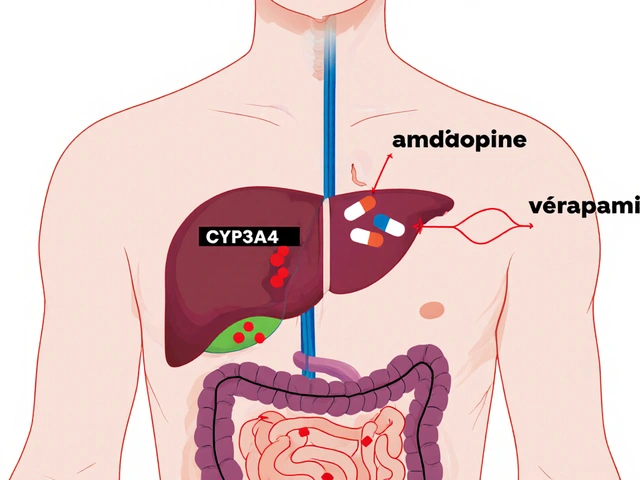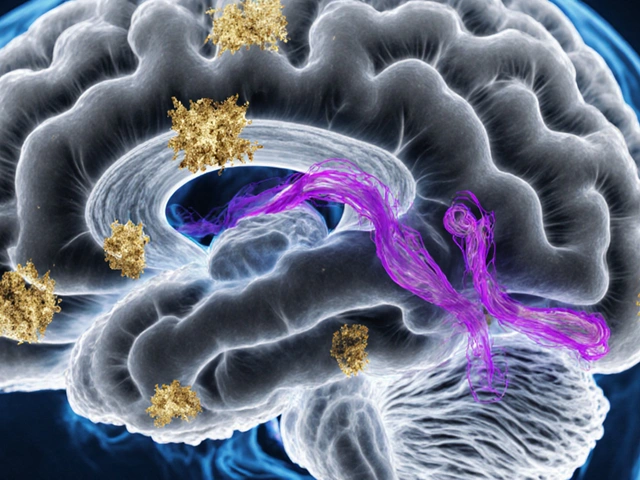Medication interaction: how to spot risky drug mixes and stay safe
Mixing medicines—prescription drugs, over-the-counter pills, supplements, or even some foods—can change how a drug works or cause harm. You don’t need to be a pharmacist to avoid trouble. Learn quick checks you can do today and clear examples that matter.
Simple rules you can use now
Keep a single, up-to-date list of everything you take (prescriptions, vitamins, herbs). Bring it to every doctor or pharmacy visit. Ask the pharmacist to run an interaction check — they do this daily and will flag risky combos. Use one pharmacy when possible; they track your meds and can spot new conflicts. And never start or stop a drug without asking a clinician, especially if you take blood thinners, medicines for the heart, mental health drugs, or strong pain medicines.
Read labels. They often call out big risks—like "avoid alcohol" or "do not take with certain antacids." When in doubt, call your provider. Online interaction checkers are helpful, but they don’t replace professional advice.
Common examples worth knowing
Some interactions keep showing up in real life. For example, statins such as atorvastatin (Lipitor) can be affected by grapefruit juice and some antifungal or antibiotic drugs — that can raise side effects like muscle pain. Metronidazole (Flagyl) and disulfiram-like drugs can cause severe nausea and flushing if mixed with alcohol. Benzodiazepines like lorazepam (Ativan) plus opioids or heavy drinking can slow breathing — that’s dangerous.
Herbal supplements matter too. St. John's wort can make birth control and some antivirals less effective. Even common antacids or acid reducers can change how well certain antivirals or antifungals are absorbed. If you’re on HIV medicines such as didanosine, be extra cautious—many antivirals interact with each other and with antacids or some antibiotics. If you take blood thinners like warfarin, many antibiotics and supplements can change your INR and bleeding risk.
If a drug causes new symptoms after you start another medicine, don’t ignore it. Sudden dizziness, unusual bleeding, severe stomach upset, confusion, or breathing trouble need fast attention. Keep emergency contacts handy and tell paramedics about all your meds.
Want to reduce risk today? Make a med list, ask your pharmacist to check interactions, avoid mixing alcohol with prescription meds, and tell every clinician about herbs and supplements. Small steps prevent big problems.
On this tag page you’ll find practical articles about specific drugs and their interaction risks — from antibiotics and statins to anxiety meds and supplements. Read the pieces that match your meds and use the tips there when you talk to your provider.

Lyrica (pregabalin) and Zoloft (sertraline) can be taken together, but this combination requires careful monitoring due to potential side effects. Lyrica, an anticonvulsant, and Zoloft, an SSRI for depression, might increase bleeding risks and suicidal thoughts. Professional guidance is crucial to manage these medications safely.






